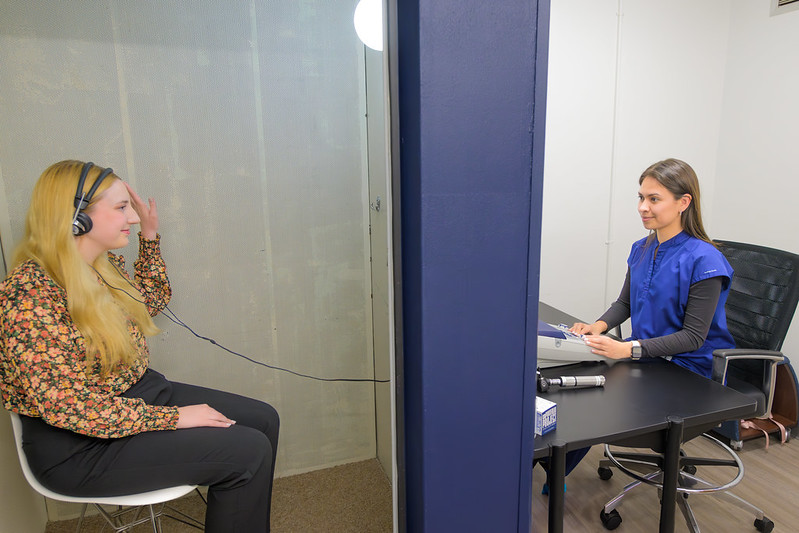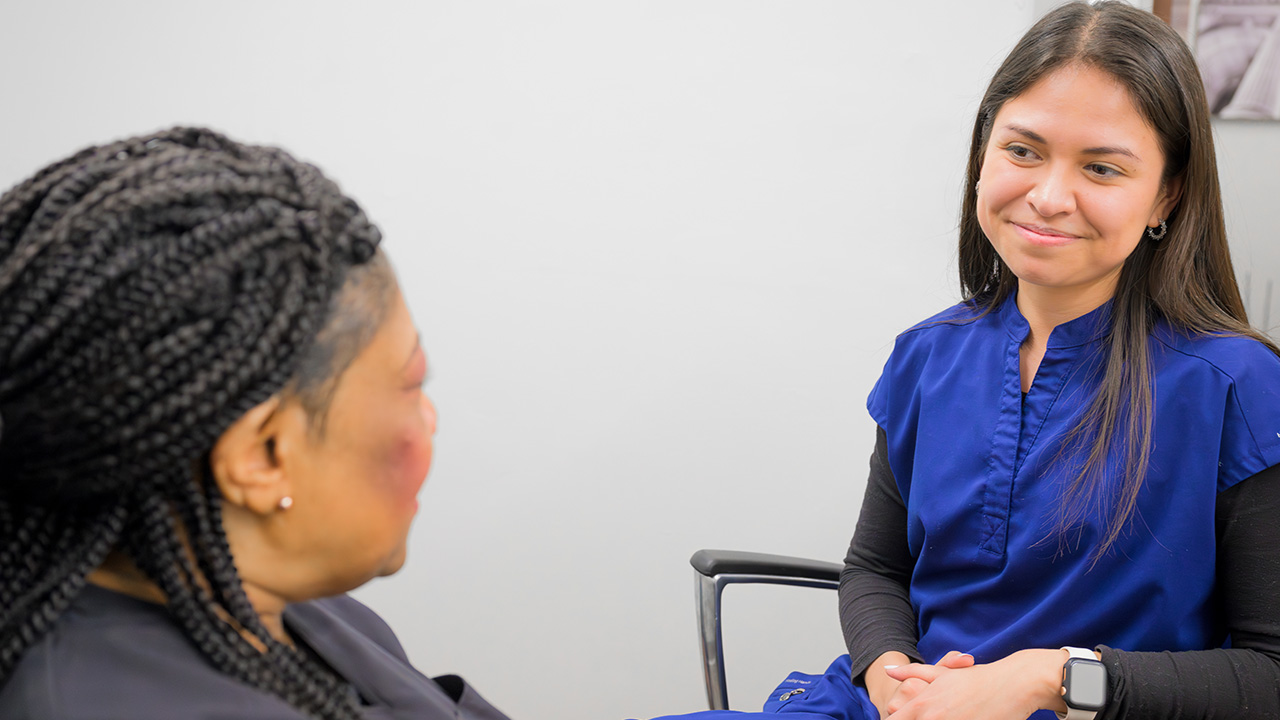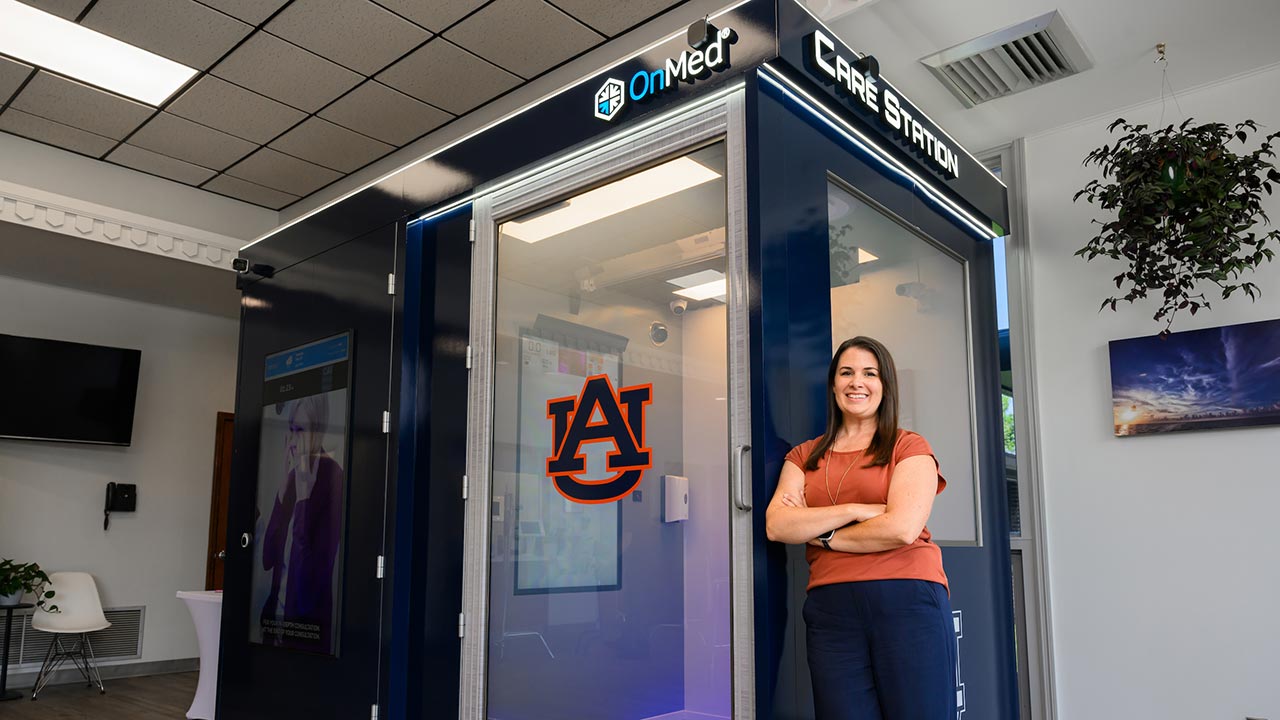content body

Rural Health Fellow Lexy Barraza conducts a hearing screening for classmate Abigail Weyerman.
When she first started doing hearing screenings at the Chambers County Community Health & Wellness Center in LaFayette, Alabama, Auburn grad student Lexy Barraza had some long, quiet days without patients. But now that she’s been there for several months, things are different.
“I have learned progress takes time,” Barraza said. “There were many times where I sat in an empty center hoping we would have at least one screening. Now, as my team and I have been consistently going there every Friday, we have seen more and more people each time.”
There are currently no practicing audiologists in Chambers County. Each Friday, Barraza, who is working toward a Doctor of Audiology degree in Auburn’s College of Liberal Arts, conducts free hearing screenings for community members as a Rural Health Fellow. She also provides more in-depth hearing-related services with her Audiology faculty mentor to members of the community who schedule appointments through the Auburn University Speech and Hearing Clinic.
The Rural Health Fellows program, which is an offshoot of Auburn’s Rural Health Initiative, aims to train future health care leaders to create positive change in health equity. After a rigorous application process this past fall, the seven students who were named Fellows are now gaining experience in rural health care by attending monthly meetings, completing Canvas course modules and designing and implementing health-centered activities in the LaFayette community. Fellows receive feedback on their projects through regular review sessions with the health service team along with constructive critiques and mentorship from experienced professionals in their respective fields.
Many of the Fellows, including Barraza, were motivated to apply for the program because they are originally from rural or underserved areas.
Barraza grew up in a primarily Hispanic community in rural Florida. There was a lack of access to adequate hearing health care in the area, and it didn’t stop at audiology — it took an hour to get to most specialty medical providers. After earning a bachelor’s degree in health sciences, Barraza took a year off to work as a pharmacy technician, and that experience helped her refine her goals.
“I see a big need for better health care for our Hispanic population,” she said. “My specialty is audiology, but I would like to use my knowledge to give back to the Hispanic community as much as I possibly can. I want to take what I have learned from this fellowship and implement that when I graduate.”

Rural Health Fellow Lexy Barraza practices performing an examination on classmate Abigail Weyerman.
Barraza initially wanted to be a speech-language pathologist, but after just one hearing science course, she was sold on audiology.
“I am highly fascinated with sound science,” she said. “Along with that, I really enjoy helping someone reconnect with their social environment. When you’re not able to hear, it’s hard to participate in conversations with family members and friends. Introducing sound back into someone’s life is a great feeling.”
For the past two years, Barraza has been fitting patients with hearing aids under the guidance of the audiology faculty, and she recently got to deliver her first set of donated hearing aids to a patient in need. After her fellowship ends this May, she would like to continue to work toward expanding access to hearing care in rural communities, and when she graduates in two years, Barraza will hold herself to that commitment.
“I plan to find a practice that caters to a more rural population,” she said. “I want to expand access to hearing health care, but first, I need to find a practice that aligns with my values.”






